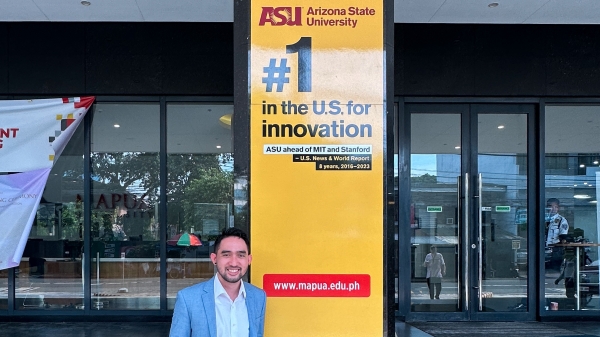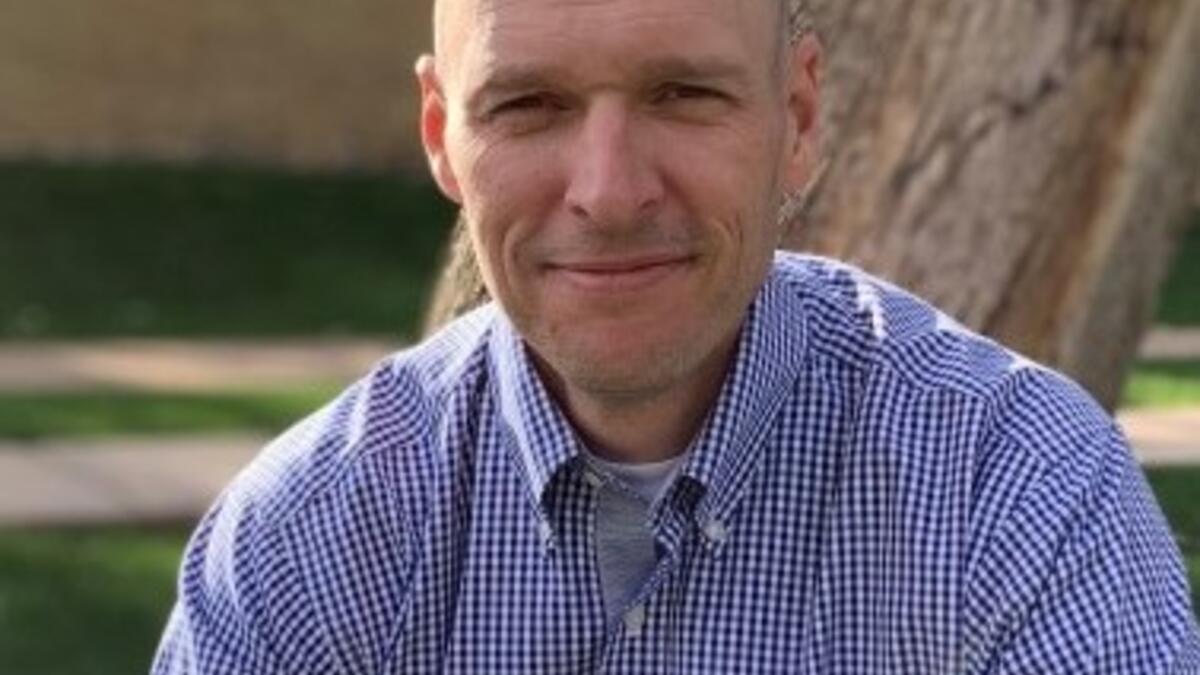Helping people isn’t something former Sun Devil Michael White only does when he’s feeling generous; for him, it’s a daily mission.
Having earned a sociology bachelor’s degree in 2011 and a criminal justice master’s degree in 2013, White is now the director of community programs at Hushabye Nursery, a Phoenix nonprofit assisting pregnant women with opioid use disorder. The organization specializes in treating neonatal abstinence syndrome, where a baby experiences opioid withdrawals due to exposure during pregnancy.
Besides his work at the nursery, White is involved in numerous policy groups. He’s a member of the Harvard Medical School Policy Group, the Georgetown Recovery Policy Collaborative, Gov. Doug Ducey’s Substance Abuse Task Force and is also a technical assistant with the Department of Justice for the Comprehensive Opioid, Stimulant, and Substance Abuse Program grant. When he isn’t strategizing with government leaders to improve opioid treatment, he is educating local hospitals and other institutions on the services available to them.
Throughout his career, White has advocated for Medication-Assisted Treatment (MAT), an effective opioid addiction treatment method, according to the U.S. Department of Health and Human Services. He has helped 14 states integrate the treatment into their correctional facilities so patients can choose it if they wish, and has helped the American Civil Liberties Union and Legal Action Center with several litigations regarding MAT. A big win for White and his colleagues occurred earlier this year when the Department of Justice issued protections for individuals seeking this form of treatment.
White says he loves this work and rates it a 10 out of 10. “It does not feel like work; just helping people,” he says.
Uncertain beginnings
White’s journey began as a sociology major at ASU’s T. Denny Sanford School of Social and Family Dynamics, where he wasn’t sure exactly what he wanted to do.
“I knew I wanted to help people, but that was about it,” White says. “I wanted to change the world for people that are usually not cared for or (are) treated poorly.”
White says sociology gave him a crucial foundation of skills such as empathy, active listening and open-mindedness. It has been especially helpful, he says, to understand models of social and human behavior in different settings and groups.
While pursuing his degree, White cultivated his passion through internships. He first interned at a juvenile facility where he interacted with young people navigating the criminal justice system, and then at Head Start, where he learned to work with families and children needing early childhood support. These experiences culminated in a full-time counseling position for an opioid treatment program, where he was able to act as both a nurturing force and an advocate for people struggling with drug use disorders.
After completing his master’s degree in criminal justice from the School of Criminology and Criminal Justice, he felt that significant, systemic change was possible in this field, but was amazed by how many people felt powerless to truly help others.
Nearly 10 years after graduating from ASU, White knows that even one person can have a big impact.
His advice to current students? “Go change the world,” he says. “It's messed up.”
More Health and medicine
College of Health Solutions medical nutrition student aims to give back to her Navajo community
As Miss Navajo Nation, Amy N. Begaye worked to improve lives in her community by raising awareness about STEM education and…

Linguistics work could improve doctor-patient communications in Philippines, beyond
When Peter Torres traveled to Mapúa University in the Philippines over the summer, he was shocked to see a billboard promoting…

Turning data into knowledge: How Health Observatory at ASU aims to educate public
This is how David Engelthaler described his first couple of months on the job as executive director of the Health Observatory at…
